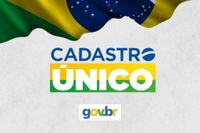On Monday, May 5, 2025, the Brazilian Federal Government officially announced the rules for the "Acredita no Primeiro Passo" program, a new initiative aimed at providing free professional training for individuals registered in the Cadastro Único (CadÚnico). This program is designed to enhance access to the job market and foster entrepreneurship among Brazilians facing social vulnerability.
The "Acredita no Primeiro Passo" program was established under Law No. 14.995, enacted on October 10, 2024. It seeks to create pathways for individuals to gain qualifications that can lead to employment opportunities, thereby increasing their economic independence. The initiative encourages participation from states, municipalities, social organizations, and both public and private institutions, all of which can contribute by offering vocational courses, job placements, and support for entrepreneurial activities.
According to the government, the program aligns with the United Nations' Sustainable Development Goals (SDGs), particularly in combating poverty and inequality. It prioritizes the inclusion of marginalized groups, such as people with disabilities, women, youth, Black individuals, and traditional or riverside communities, provided they are between the ages of 16 and 65 and maintain updated information in CadÚnico.
"The Acredita no Primeiro Passo represents a concrete opportunity for thousands of Brazilians registered in CadÚnico to achieve better living conditions," the government stated in its announcement. This initiative is part of a broader effort to overcome social exclusion and promote economic autonomy through increased income and recognition of the entrepreneurial abilities of CadÚnico beneficiaries.
To participate in the program, individuals must first ensure they are registered in CadÚnico, a system that collects information about low-income families across Brazil and serves as the gateway to various social programs. In 2025, millions of families continue to rely on social assistance programs like Bolsa Família and Auxílio Gás, highlighting the importance of maintaining an accurate and updated CadÚnico registration.
Recently, CadÚnico underwent significant changes, with the most notable being the adoption of the Cadastro de Pessoas Físicas (CPF) as the official identifier for beneficiaries, replacing the Número de Identificação Social (NIS). This update is mandated by Law No. 14.534/2023, which aims to unify citizen identification across public services. Although the NIS will still exist, its use will be limited as the CPF becomes the primary identifier for all family members registered in the system.
For families already registered, there is no need to reapply; their information has been migrated to the new system. However, it remains mandatory to update CadÚnico every 24 months or whenever there are changes in family circumstances, such as address, income, or family composition. The government emphasizes that this process is free and should be conducted at official posts, typically located at Centro de Referência de Assistência Social (CRAS) facilities.
As Brazil sees a rise in individuals living alone, CadÚnico also plays a crucial role in providing support to this demographic. The program is designed to assist not only families but also individuals who face financial challenges while living independently. To qualify for CadÚnico, individuals must meet specific income criteria, including a monthly income of up to half the minimum wage or a total income not exceeding three minimum wages. People experiencing homelessness are also eligible for registration.
Individuals living alone and registered with CadÚnico have access to various social programs, including Bolsa Família, which offers financial support to families in poverty, discounts on electricity bills, Vale-Gás, which provides assistance for purchasing cooking gas, and Minha Casa, Minha Vida, which offers favorable financing conditions for low-income individuals looking to acquire property.
With the increasing importance of CadÚnico in accessing social benefits, the government has warned beneficiaries to keep their information accurate and updated. In 2025, any discrepancies in the registration can lead to the suspension of benefits, a situation that can arise from unreported changes in household composition, income, or residency. The government has implemented stricter data cross-checking, meaning that errors that may have been overlooked in the past could now result in temporary or permanent loss of assistance.
To avoid losing access to essential benefits, families must ensure that they report any changes, including the addition or removal of household members, changes in income, or changes in marital status. The government has made it clear that maintaining accurate records is crucial for continuing eligibility for programs like Bolsa Família, which requires a per capita income of no more than R$ 218 per month.
Beneficiaries are encouraged to verify their registration status through the CadÚnico app, the official government website, or in person at local CRAS offices. Notifications about any issues with their registrations will typically be communicated via SMS, physical letters, or alerts in the Bolsa Família app. If a beneficiary sees their Bolsa Família or Auxílio Gás amount listed as R$ 0.00, it indicates a potential problem with their registration that needs immediate attention.
In summary, the "Acredita no Primeiro Passo" program and the updated CadÚnico system represent significant steps by the Brazilian government to enhance social support for vulnerable populations. By providing free vocational training and ensuring that individuals living alone have access to necessary resources, the government aims to uplift those in need and foster a more inclusive economy.





